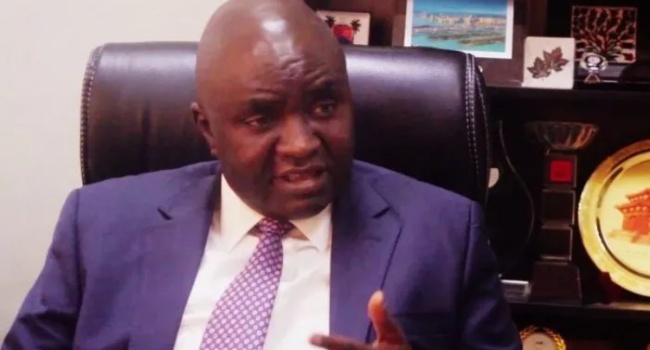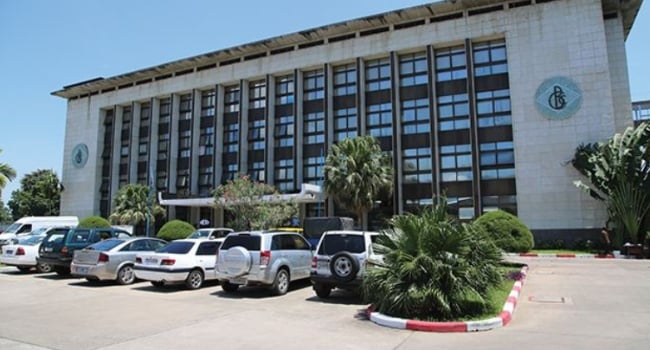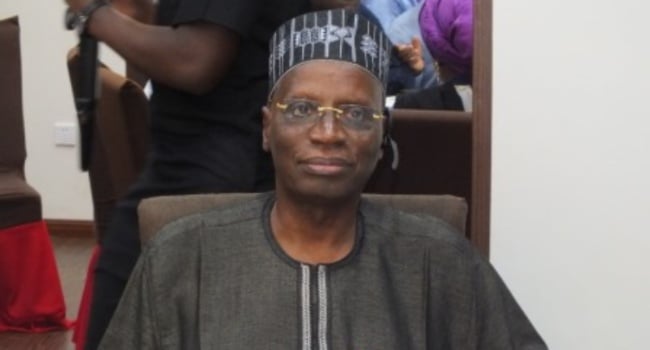The Centre for the Promotion of Private Enterprise (CPPE) has urged the Central Bank of Nigeria (CBN) to intensify efforts to stabilise the foreign exchange (forex) rate and reduce pressure in the market.
Muda Yusuf, chief executive officer of CPPE, gave the advice in an interview with NAN in Lagos on Friday.
Speaking on steps taken to improve liquidity and stabilise the foreign exchange market, Yusuf said there was still more to be done despite the efforts of the CBN.
“The CBN under the new leadership has taken some steps to clear the backlog and also impact on some banks; I know up to 70 percent of the backlog has been cleared,” Yusuf said.
Advertisement
“So that for me was a major step forward to bring back confidence into the foreign exchange market.
“We have also been told of other measures that are being taken by the CBN in conjunction with the fiscal authorities to mobilise a lot more liquidity.
“For instance, we were told about the decision to securitise our dividend from Nigeria Liquefied Natural Gas (NLNG) and through that get some banks to give us some more funding in terms of foreign exchange.
Advertisement
“Then there was a decision about forward sales of crude by the NNPC. Also, the government was working out something in conjunction with the African export-import Bank (Afreximbank) to get some dollars.
“There are also efforts around improving exports of crude oil because if we are able to improve our output, definitely our foreign exchange inflow will improve. So, these are steps that have been taken that should be effective.”
Yusuf, however, expressed worry about the delay in the manifestation of tangible results.
“How soon these will now begin to turn into concrete outcomes is a different thing; at least we have seen some impact it had on the naira with the clearing of some backlog and the impact it also had on the market,” he said.
Advertisement
“How sustainable they are again is very difficult to predict, it depends on how much success the government can achieve
“So the point is that if we can make headway or succeed with some of the efforts that have been outlined, then we will begin to see some more sustainable stability in the market.”
‘INFLATION CONTROLLED BY FOREX’
On Inflation, Yusuf said food inflation was influenced and controlled by foreign exchange.
Advertisement
He said there was a strong relationship between the exchange rate and inflation, adding that if the country can stabilise the exchange rate, there will be moderate inflation.
“Anytime we are experiencing a depreciation, inflation goes up because the economy is highly sensitive to developments in the foreign exchange market because of the high level of import dependence,” he said.
Advertisement
“Also, insecurity is affecting the food supply. Our currency is now very weak, all the neighbouring countries are using CEFA and our products are now very much cheaper for them to buy, including food products.
“So there’s additional pressure coming from the neighbouring countries buying off these things and because the border is porous, it makes it difficult to monitor all those things.
Advertisement
“There’s also this regional dimension to the problem of inflation and also the cost of transportation, diesel, the state of the roads when all these are incorporated into the price, it will affect the cost of whatever food products they are carrying.”
Yusuf said there would be ease when the factors driving inflation are tackled.
Advertisement






